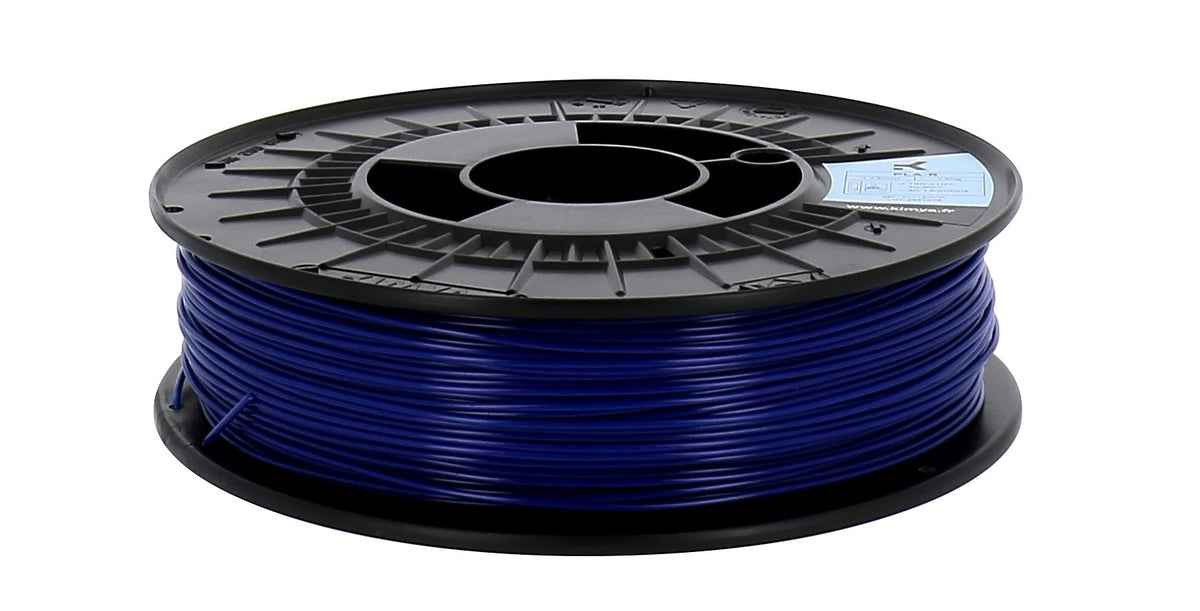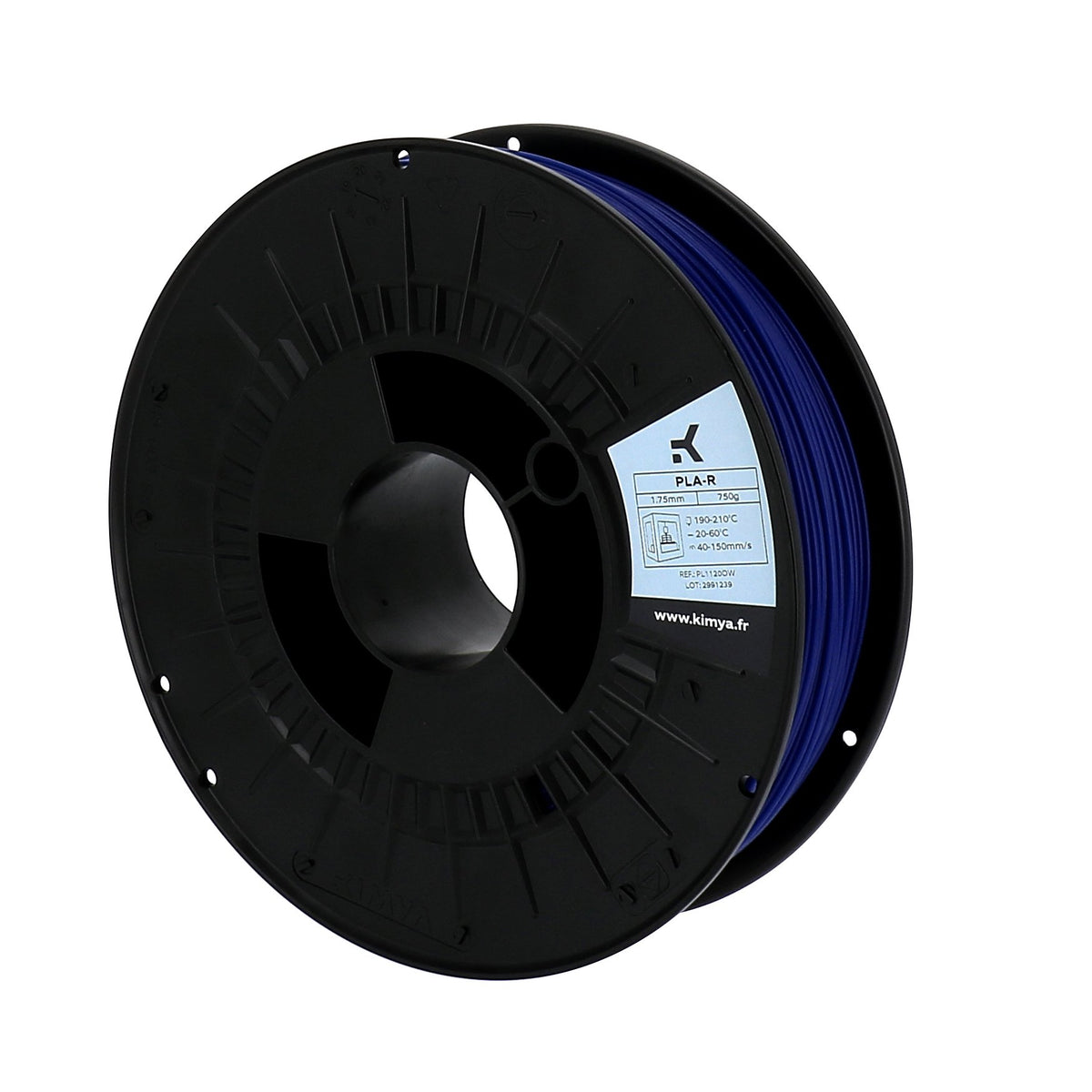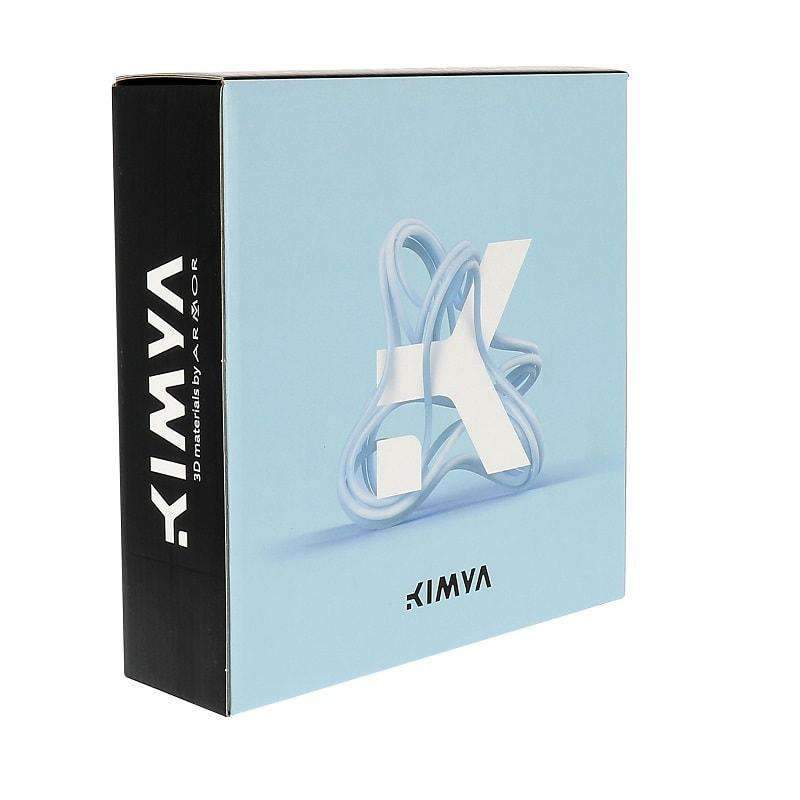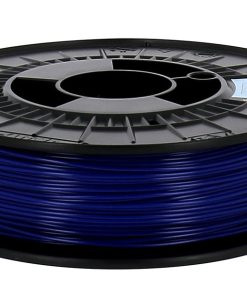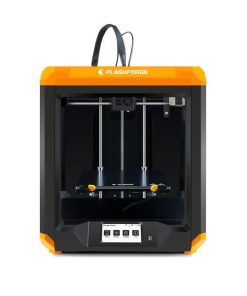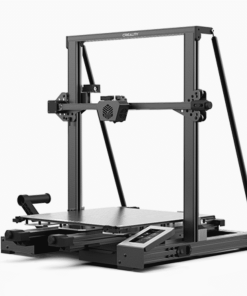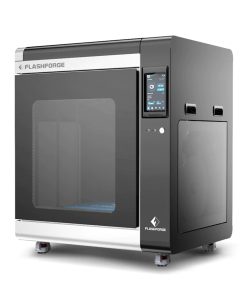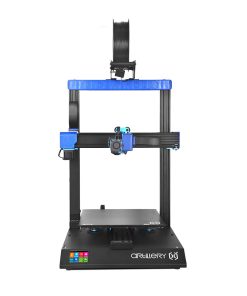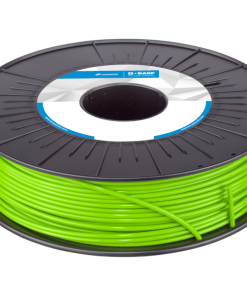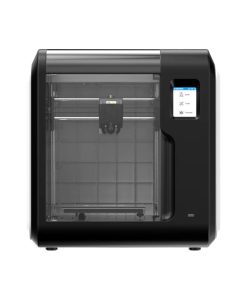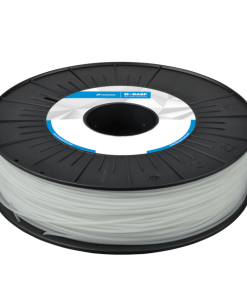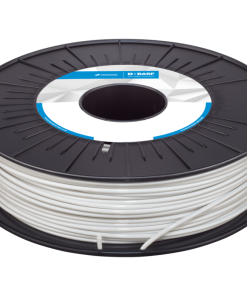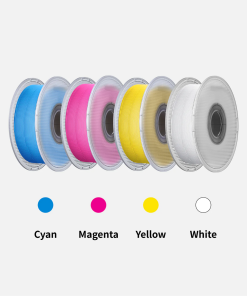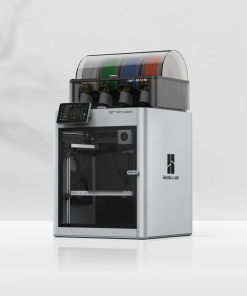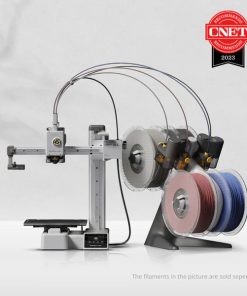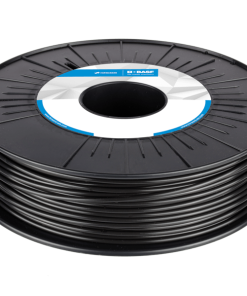KIMYA – PLA-R Filament – Blue Armor Group
$ 28,00 $ 16,80
KIMYA PLA-R Filament – 750 grams, 2.2 kilos
The 3D filament Kimya PLA-R is a recycled and biodegradable polymer: this biosourced homopolymer can be obtained from corn starch. Polylactic acid (PLA) is a natural alternative to polyethylene. It is easy to print and is odorless. The 3D filament Kimya PLA-R can be used in industrial applications, notably packaging, and also in domestic applications: creation of everyday objects, toys, prototypes and for use in modeling. It offers the following properties:
- Easy to print
- Odorless
- Glossy finish
- ≥ 97% recycled materials (100% recycled materials – PLA-R Natural)
- Eligible to the EN 13432 and EN 14995 standards (PLA-R Natural)
- Complies with the REACH standard
- Product Dimensions: 20.7 × 20.5 × 6 cm; 1.1 kg
FILAMENT PROPERTIES
| PROPERTIES | TEST METHODS | VALUES |
|---|---|---|
| Diameter | INS-6712 | 1.75 ± 0.1 mm 2.85 ± 0.1 mm |
| Density | ISO 1183-1 | 1.24 g/cm3 |
| Moisture rate | INS-6711 | < 1 % |
| Melt flow index (MFI) | ISO 1133-1 (@210°C – 2,16 kg) | 9 – 12 g/10min |
| Glass transition temperature (Tg) | ISO 11357-1 DSC (10°C/min – 20-220°C) | 61 °C |
| Melting Temperature (Tm) | ISO 11357-1 DSC (10°C/min – 20-220°C) | 150 °C |
PRINT PARAMETERS AND SPECIMENS DIMENSIONS
| PRINTING DIRECTION | XY |
|---|---|
| Printing Speed | 40-150 mm/s |
| Infill | 100% – rectilinear |
| Infill Angle | 45°/-45° |
| Nozzle Temperature | 190-210°C |
| Bed T° | 20-60°C |
PRINTED SPECIMENS PROPERTIES
| PROPERTIES | TEST METHODS | VALUES | |
|---|---|---|---|
| MECHANICAL PROPERTIES | Tensile modulus | ISO 527-2/5A/50 | 2,963 MPa |
| Tensile Strength | ISO 527-2/5A/50 | 57.9 MPa | |
| Tensile strain at strength | ISO 527-2/5A/50 | 2.2 % | |
| Tensile Stress at Break | ISO 527-2/5A/50 | 47.3 MPa | |
| Tensile strain at break | ISO 527-2/5A/50 | 4 % | |
| Flexural modulus | ISO 178 | 2,675 MPa | |
| Flexural stress at conventional deflection (3,5% strain)* | ISO 178 | 88.8 MPa | |
| Flexural stress at break | ISO 178 | 91.6 MPa | |
| Charpy impact resistance | ISO 179-1/1eA | 3.22 kJ/m² | |
| Shore Hardness | ISO 868 | 79.1D |
| Note 1 | *According to ISO 178, end of the test at 5% deformation even if there is no specimen break. |
| Note 2 | The data should be considered as indicative values – Properties can be influenced by production conditions. |
| Spool Size | 750g |
|---|---|
| Diameter | 1.75mm, 2.85mm |
| Color | Blue |
Professional packing and fast shipping
Due to our longstanding partnership with UPS FedEx DHL and other major global carriers, we are able provide a range of shipping options. Our warehouse staff is highly trained to package your goods exactly as per the specifications we offer. Before shipping the goods are carefully inspected and secured. Everyday we deliver thousands of packages to customers from all over the world. This is a testament to our commitment to be the largest online retailer worldwide. The warehouses and centers for distribution are situated in Europe and the USA.
Orders with more than one item are given processing time for each item.
Before shipping, we will conduct a thorough inspection of the items you've ordered. Currently, most orders are shipped within 48-hours. Expected delivery time is between 3 and 7 days.
Returns
The stock is dynamic and we do not fully manage it because of the fact that multiple stakeholders are involved, including our factory and warehouse. The actual levels of stock can change at any moment. It's possible that the stock may run out after your order has been placed.
The policy is 30 days. If you haven't received the product within 30 days, we are not able to issue a refund or an exchange.
For your item to be returned, it must be unopened and in the same state as you received it in. It must also be in the original packaging.
Related products
3D Printer
3D Printer
3D Printer
3D Printer
3D Printer
3D Printer
3D Printer
3D Printer
3D Printer
